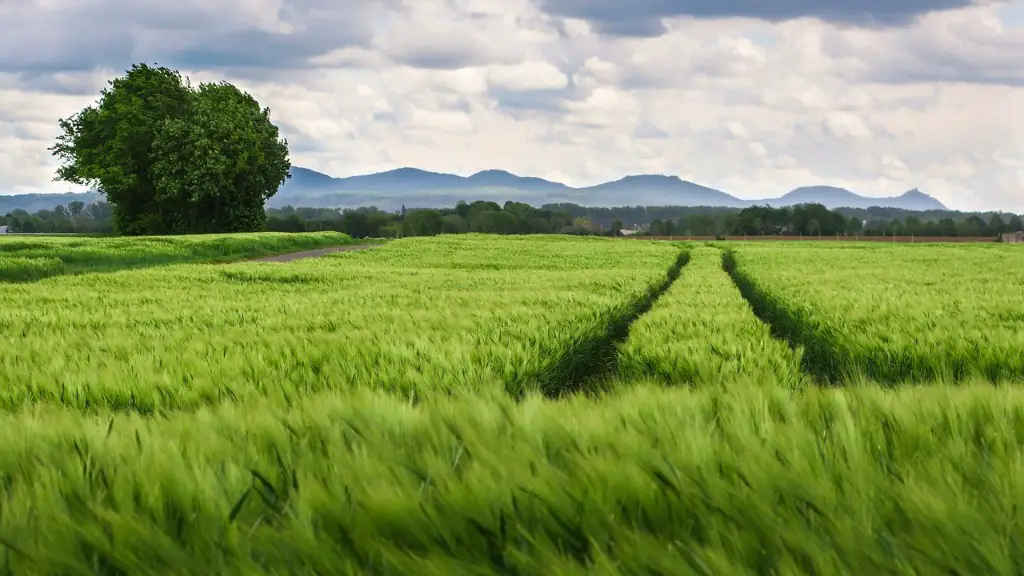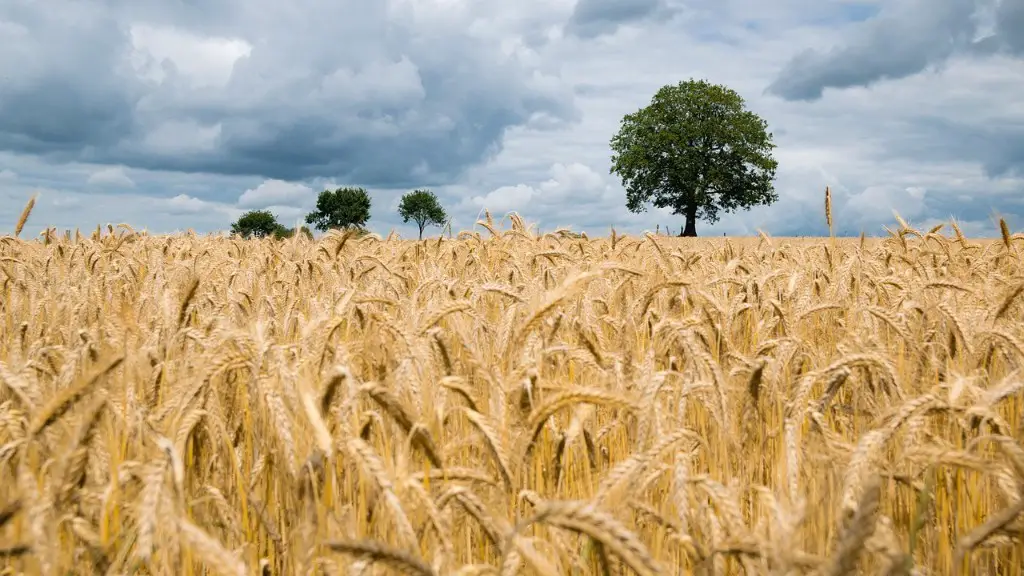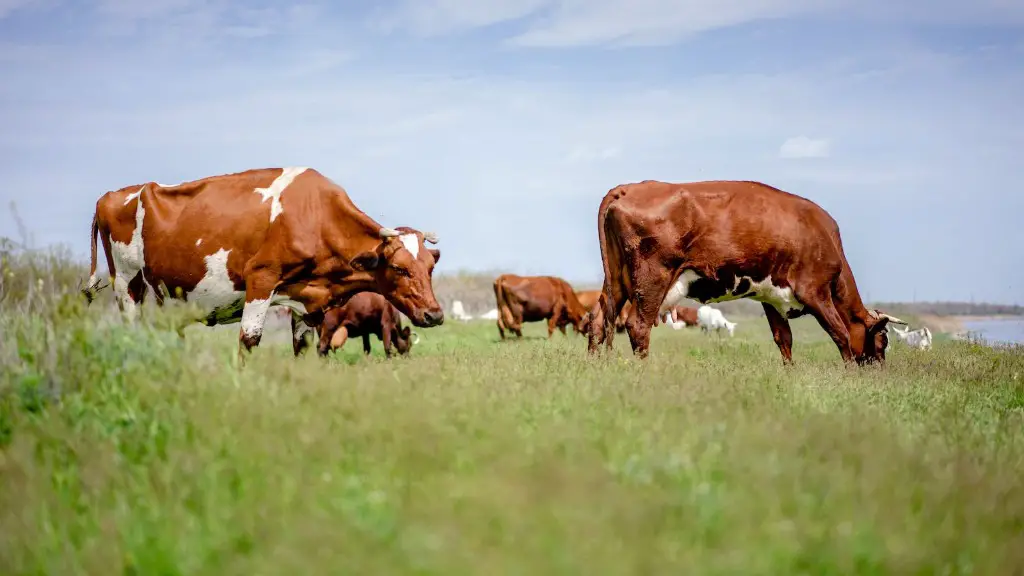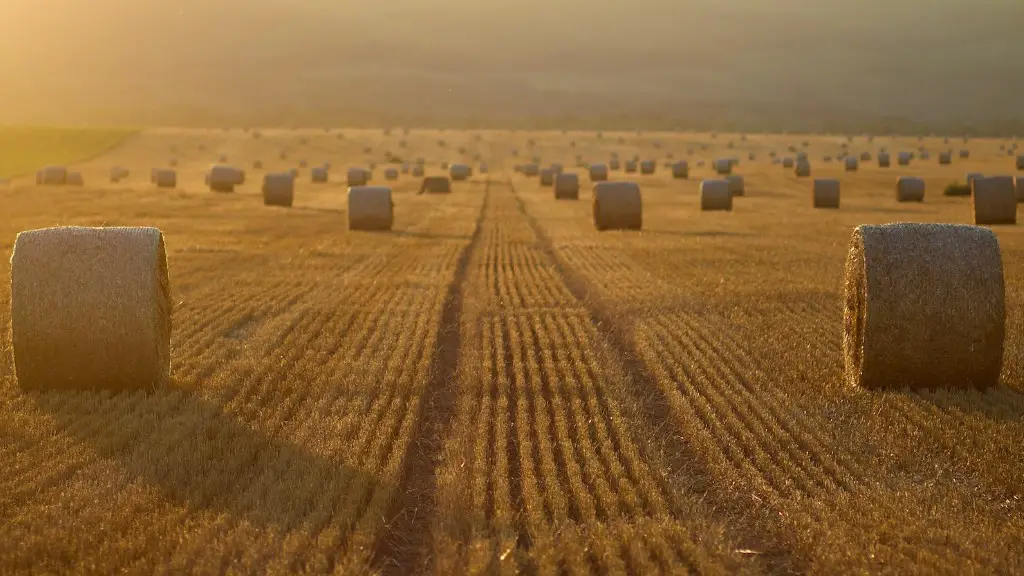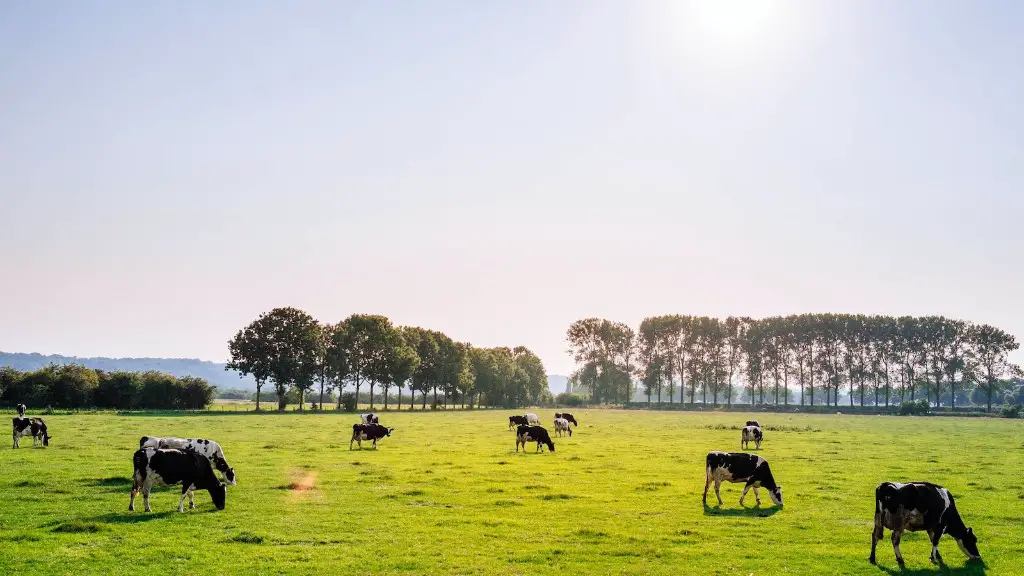A commissioner of agriculture is an important public officer whose primary responsibility is to oversee the agricultural industry and related activities in their state or country. These officials generally serve as the chief spokesperson and advocate for the state’s agricultural industry, formulating policies and overseeing their implementation. Commissioners typically have a broad understanding of the agricultural industry and are expected to stay abreast of the latest research and innovations that can benefit the industry. Understanding their roles and responsibilities is key for those interested in becoming a commissioner.
Being a commissioner of agriculture requires a thorough understanding of the agricultural sector, its methods, and the logistics that go into running any agricultural business. In order to become a commissioner of agriculture, one must have experience in the agricultural industry, preferably having held a senior-level management role in the sector. Commissioners are expected to keep a close eye on the market, identify opportunities of growth and improvement, and use this information to develop and implement beneficial policies.
As part of their duties, commissioners of agriculture must also ensure the safety of consumers. This involves ensuring that producers adhere to safety regulations, such as those that ensure the quality of food, and cooperating with other agencies to maintain safety standards and regulations. They must also develop and implement programs designed to promote and advance the agricultural sector, such as providing information on agribusiness, conducting research and surveys, and helping to develop cost-effective technologies.
In addition, commissioners of agriculture also play a critical role in the education and communication of agricultural topics, both within their state or country and abroad. They often work with media to communicate pertinent information, craft and deliver presentations, and create educational materials. These commissioners may also participate in conventions, meetings, and trade shows, including those that take place outside their state, in order to promote the state’s agricultural sector and increase its visibility.
Additionally, commissioners must be able to establish and maintain relationships with a variety of stakeholders, including farmers, ranchers, grocers, restauranteurs, and lawmakers. In many cases, commissioners of agriculture serve on various boards and committees, often taking the helm of organizations related to their role. They must ensure that the interests of all stakeholders are heard and they must also work towards ensuring that their work is in line with their state’s agricultural policy.
Role in Legislation
An important part of any commissioner of agriculture’s role is to promote and work for the advancement of their state’s agricultural sector through the legal system. They are responsible for prioritizing certain initiatives and bringing them to the legislature for consideration. This can range from creating programs to develop certain crops, to providing tax relief for certain industries, to investing in infrastructure projects that support the agricultural sector.
Commissioners of agriculture must also be aware of any changes in legislation that can affect the agricultural industry, such as changes in customs, taxes, or labor policies. They must also be prepared to argue their case in front of legislators and make sure their initiatives are passed. Commissioners often serve on a variety of boards and committees, such as state food safety boards, and they must be prepared to make the necessary decisions to ensure the integrity of the agricultural industry.
Commissioners of agriculture also serve as an advocate for growers and producers, as they can speak on their behalf and help them understand the view of the legislation and intervene in disputes between producers, purchasers, and suppliers. They must be able to bridge the gap between the various elements of the agricultural supply chain and ensure they all are working together in unison.
Monitoring of Agricultural Practices
Commissioners of agriculture must monitor the practices of all agricultural businesses and organizations in their jurisdiction. This usually involves ensuring that products are safe for consumption, and businesses are compliant with the local regulations. Commission typically conduct regular inspections and inspections as needed, in order to ensure that businesses are meeting their obligations. They use their knowledge and understanding of the industry to identify any potential problems and then take the necessary steps to rectify the situation.
Commissioners of agriculture must also be adept at public relations and effective communication, in order to be able to explain their decisions to all stakeholders in the agriculture industry. They must be able to efficiently and effectively communicate with all their constituents, in order to resolve disputes and reach agreement on the terms of various agreements. They must be able to build consensus and facilitate dialogue among various stakeholders and resolve disputes.
In addition, commissioners of agriculture must work with the media to communicate their decisions and initiatives to the public, in order to maintain the public’s trust in the agricultural industry. Public relations efforts should be part of any commissioner of agriculture’s role, as they must ensure that negative publicity is avoided and the industry is promoted in an effective and positive light.
Work with Agricultural Organizations
Commissioners of agriculture are also expected to engage with various agricultural organizations, such as trade associations, universities, regional and state agricultural committees. They must work with these entities to promote the industry and provide them with the resources, resources, and incentives necessary for their success. This includes working with producers and distributors to ensure the availability of quality and affordable products and services, and ensure that the industry runs smoothly and efficiently.
Commissioners also typically engage with producers to discuss any potential problems that may affect the industry. This typically involves providing feedback on any changes or issues that producers may be facing, in order to inform them on how to best handle the situation. They must also work with organizations to ensure that farmers and ranchers receive fair compensation for their products and services and are not charged an excessive fee.
It is also important for commissioners of agriculture to perform their duties in accordance with the laws and regulations of their state. They must always remain up-to-date on the legal and regulatory requirements of their office and abide by them. They must also ensure that producers and other stakeholders are aware of and abide by these laws and regulations.
Overseeing of Economic Development Programs
Commissioners of agriculture also often oversee economic development programs, as they are intended to stimulate economic growth within a particular region. This typically involves involving investors and providing financial incentives in order to ensure the successful creation and operation of agricultural businesses within their jurisdiction. Commissioners of agriculture are expected to provide resources and guidance to those pursuing economic development opportunities, as well as provide advice and assistance when needed.
Commissioners of agriculture must also keep an eye on the markets and investment opportunities available to those in the agricultural sector. This typically involves providing relief or tax incentives for those involved in certain industries, as well as ensuring that certain businesses are exempt from certain rules and regulations. In some cases, commissioners must develop long-term plans for the development and growth of the agricultural industry, with the help of investors, producers, and other stakeholders.
As part of their roles and responsibilities, commissioners of agriculture must analyze the current state of the industry and develop strategies for growth and development. This may include conducting research, joining with industry experts, and providing resources and assistance to those in need. They must work with various stakeholders in order to develop beneficial policies in order to ensure the success of the agricultural industry.
Promoting Agricultural Projects
Commissioners of agriculture must also create and promote various agricultural projects in order to ensure their state’s economic and environmental health. These projects are typically designed to encourage sustainable and responsible agricultural practices, as well as provide incentives for the development of projects that create jobs and boost the economy. Commissioners of agriculture must work with various stakeholders and members of the community to design and deliver effective and efficient projects that meet the needs of the state.
Commissioners must also be able to represent their state or country at national and international conferences, often as part of their role as a motivator for the agricultural industry. It is their responsibility to ensure that their state’s message is presented at the highest level, in order to cultivate relationships and gain the support of the international agricultural community. Commissioners must also network, build connections, and identify sources of pertinent information in order to be successful in their role.
Commissioners of agriculture must also be prepared to tackle current and emerging issues related to the agricultural industry. These may include trade issues, environmental concerns, and sustainability initiatives. They must be knowledgeable and resourceful in order to find the best solutions to these issues and ensure the future of the agricultural sector.
Promoting Agricultural Products
Commissioners of agriculture are also responsible for promoting the products of their respective state or country and identifying opportunities for local farmers and producers to increase their marketability and generate more profit. This may involve providing resources and guidance to those in the industry, creating attractive promotional programs, and participating in trade shows and conferences. Commissioners must use their knowledge, expertise, and creativity to develop creative and efficient solutions and programs to support the industry and its members.
Commissioners of agriculture must also be prepared to work with investors and potential partnerships in order to capture new opportunities or expand markets. They must assess options and determine the best path forward in order to ensure the success of the industry. Commissioners must also have the ability to effectively negotiate appropriate agreements and contracts with a variety of stakeholders, in order to ensure that their state’s best interests are protected.
Finally, commissioners of agriculture must be able to stay organized and up-to-date in order to ensure their office is running efficiently. This typically involves tracking developments in the agricultural industry, attending and preparing for conferences, conventions, and discussions, and staying in contact with stakeholders. Commissioners of agriculture must also be able to effectively delegate duties to their staff and other team members in order to optimize their performance and ensure the success of their duties.
